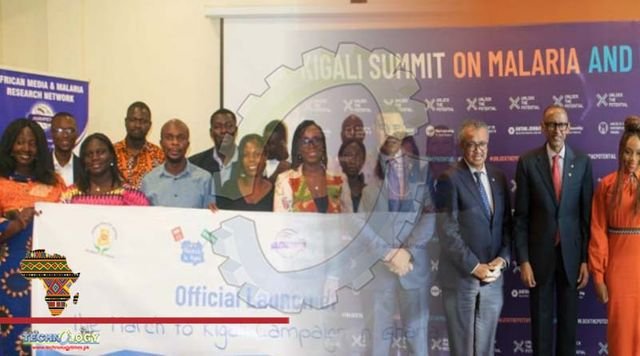During The Kigali Summit on Malaria and Neglected Tropical Diseases (NTDs) hosted by Rwanda, leaders reflected on the Kigali summit and made commitments to work towards ending the epidemic of malaria and NTDs by 2030, to recognise the Kigali Declaration on Neglected Tropical Diseases, and to call for the successful 7th replenishment of The Global Fund.

The Kigali Declaration has secured substantial commitments by donor governments, endemic country governments, pharmaceutical companies, NGOs and others including over U.S.$1.4 billion in financial commitments, 18 billion tablets donated by 9 industry partners and $562 million in other health products. Commitments were made by a number of governments to support the malaria and NTD fight. These featured commitments to domestic resources, co-financing and support for innovation. Commitments were made by Canada, Germany, Rwanda, UAE, the United United Kingdom, the USA, as well as endemic country funding and End Malaria Councils and Funds. Private sector organisations committed to donations of drugs and health products, research funding, enhancing local manufacturing capacity, co-financing initiatives to unlock larger private sector funding. Commitments were also made by several private sector companies including BioNTech, Dentsu, Ecobank, GSK, Goodbye Malaria, Novartis, MMV, Medicines Development for Global Health and Pfizer.
AllAfrica’s Sethi Ncube interviewed Anthony Okara, Special Ambassador of the African Leaders Malaria Alliance, who says sustained funding ensures malaria and NTD programmes can deliver tools and treatments to people in need and that the tremendous progress made against these preventable, treatable diseases and the health systems they support are not lost. “To end malaria within a generation, increased investment is required to address population growth, combat emerging antimalarial and insecticide resistance, scale up the use of cost-effective tools and sustain the growing pipeline of transformative ones. This will include new drugs and medicines, new insecticides and next-generation dual-action mosquito nets, and new vaccines that use the new technologies developed for the COVID-19 vaccines. The need for greater innovation and funding is a huge challenge in the fight against malaria and NTDs,”
By eliminating both diseases, not only health outcomes will be improved and preventable suffering ended but also equity will be driven, economic growth increased, and health systems supported to detect and respond to emerging public health threats. “Countries impacted by malaria are doing their part and are contributing domestic resources towards malaria elimination. For example, in 2022-2023, countries have contributed over US$2.1 billion in domestic co-financing for malaria as part of their engagement in the Global Fund. However, malaria and NTDs are diseases of poverty and are concentrated in the lowest income countries with the least ability to pay. For this reason, international resources are also required. The combined domestic and international resources have ensured that since 2000, country leadership and global partnership have saved 10.6 million lives from malaria and prevented 1.7 billion cases. 46 countries have eliminated at least one NTD and 600 million people no longer require treatment for NTDs
Source: This news is originally published by allafrica